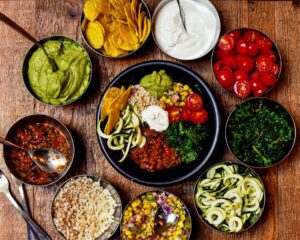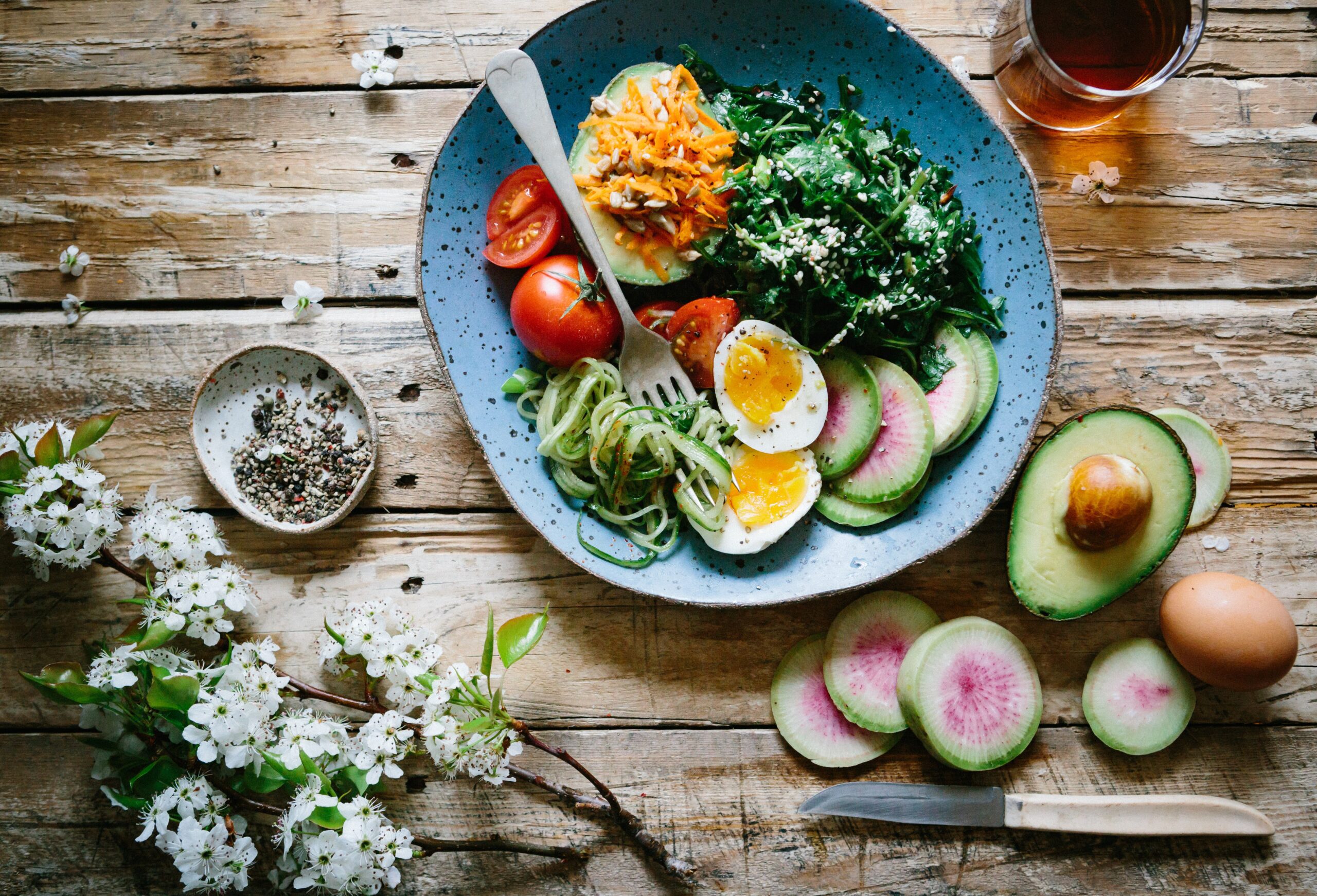Are you embracing a vegetarian or vegan lifestyle? Do you consume sufficient protein every day? If you’re not sure, this blog can help you to consume the protein and nutrition you need to thrive on a meatless diet.
Why embrace a vegetarian or vegan diet?
There are many benefits to eating vego or vegan. These diets are usually lower in saturated fat and cholesterol, higher in fibre, vitamins and minerals, and typically lower in calories which can be beneficial for weight loss and overall health. They’re also more sustainable and can help reduce the environmental impact of food production.
What is the role of protein in the body?
Proteins play an important role in the body by providing structure, aiding in the transport of molecules, and helping to regulate biochemical processes. They can be found in every cell in the body and are essential for the growth and repair of tissues, the production of hormones, and the development of healthy muscles, bones, and skin. Proteins also provide energy and are required for the proper functioning of the immune system.
Getting enough protein each day is fundamental for optimum health and vitality. Here’s how to do it!
How much protein should we eat each day?
The recommended dietary allowance (RDA) for protein is 0.8 grams of protein per kilogram of body weight, or 0.36 grams per pound. For an average adult, this comes to about 56 grams per day.
Ready to up your intake of protein? These foods will help!
Top 10 vegetarian protein sources you’ll love
#1: TOFU
Tofu is a food made from condensed soy milk that is pressed into solid white blocks. It is high in protein, low in fat and is an excellent source of important vitamins and minerals, including calcium and iron. We encourage you to try tofu in dishes such as stir-fries, soups and salads.
Feeling tofu-tempted? Why not try our sesame crusted tofu burgers. They’re delicious!
#2: NUTS
Nuts are rich in essential amino acids, which are the building blocks of protein. A great source of healthy fats and fibre, eating nuts as part of a balanced diet can help promote muscle growth, tissue repair, and overall health. Why not try a small handful of almonds, pecans, peanuts or macadamia nuts as a quick snack. Try to avoid the salted varieties to minimise your salt intake.
Love your nuts? Why not try our delectable peanut caramel bar for a guilt-free treat!
#3: Lentils
Lentils are high in both soluble and insoluble fibre which helps to promote satiety and reduce hunger. They are also a good source of essential amino acids, the building blocks of protein, and provide around 9 grams of protein per half-cup serving (cooked). Lentils are also relatively low in calories and an excellent source of other micronutrients such as iron, folate, and magnesium.
Ready for some lentil magic? You’ll keep coming back for our pumpkin and red-lentil lasagne and our lentil and whipped potato pie. They’re truly divine.
#4: QUINOA (Oats and Barley are good too!)
Quinoa contains all nine essential amino acids making it a complete protein. It also contains high amounts of fibre and essential vitamins and minerals including iron, magnesium and phosphorus. Additionally, quinoa is naturally gluten-free and low in calories which makes it a healthy and nutritious source of protein.
Need a quinoa hit? Why not try our carrot and quinoa salad with toasted seeds. Yum!
#5: BEANS
Beans such as black beans, mung beans and kidney beans are an excellent source of plant-based protein, containing all nine essential amino acids. They are rich in fibre, minerals, vitamins and antioxidants making them a nutritious and complete source of protein. A highly accessible and healthy choice for many people, beans are also cholesterol-free, low in fat and sodium and an affordable food choice.
Can’t get enough of brilliant beans? Why not try our mung bean salad with ginger, soy and honey or our hearty mexican black bean burger. They’ll leave you feeling satisfied and nourished.
#6: SEEDS
Seeds contain high amounts of essential fatty acids, vitamins, minerals, and fibre. Seeds are also high in essential minerals such as magnesium, zinc, iron and copper. So, which seeds are the highest in protein? Try adding pumpkin, chia, hemp and sunflower seeds to a variety of recipes for a protein and flavour hit!
Speaking of flavour hit, why not try our spinach and ricotta filo tart topped with sesame seeds or our mushroom parcel filled with layers of caraway seeds. Delicious!
#7: CHEESE (Sorry vegans!)
Who doesn’t love cheese! It contains around 20-25% of the daily recommended value of protein per 100g serving (depending on the cheese) and is also high in calcium which is important for bone health. A good source of zinc, cheese also supports immune system and let’s face it, tastes amazing!
Ready to put a smile on your dial? Our sweet potato and goats cheese tart or our leek and gruyere tart will have you grinning from ear to ear!
#8: FRUIT AND VEGETABLES
Fruit and vegetables vary in their protein concentration and contain a range of essential amino acids. Fruits high in protein include avocados, guava, apricots, kiwi, blackberries and papaya. High-protein vegetables include spinach, broccoli, soybeans, kale, potatoes, mushrooms and edamame.
Our kale tabouli and our kimchi and sweet potato fritter are packed-filled with natural protein and are mouth-wateringly delicious! We guarantee you’ll come back for more!
#9: EGGS (Sorry vegans!)
Eggs are often referred to as a ‘complete protein’ meaning that they contain all of the essential amino acids needed for the body to function properly. Eggs are a relatively low-calorie source of protein, providing about 6 grams of protein in a single large egg. Eggs are also an excellent source of other important nutrients including healthy fats, vitamins, and minerals, including B vitamins, phosphorus, and selenium.
If you love your eggs, you can’t go past our broccoli and haloumi fritter or Mamma Nat’s eggplant parmigiana. Containing eggs, these delicious protein-based meals will tingle your tastebuds and save you time in the kitchen!
#10: TEMPEH
Tempeh is a form of fermented soybean cake that originated in Indonesia. It is made by fermenting boiled soybeans with a starter culture, which gives it a nutty flavour and chewy texture. Tempeh is a great source of plant-based protein, containing up to 20g of protein per 100g serving. It is also a good source of dietary fibre, iron, calcium, and other vitamins and minerals.
Ready to grab some high-protein, delicious food? Simply head down to a Let Them Eat location near you.

